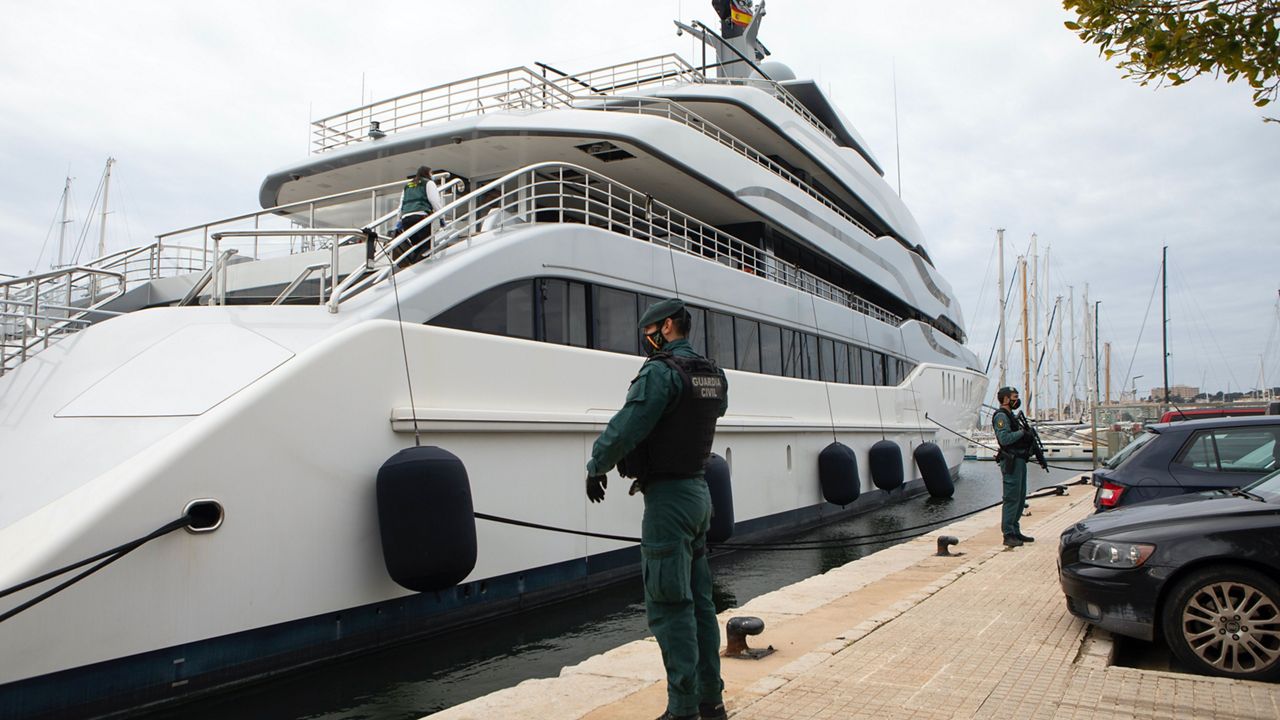The Biden administration announced a new round of sanctions on Wednesday in retaliation for alleged “war crimes” in Ukraine, aimed at punishing both Russian elites and the country’s economy at large.
The new round of restrictions joins previous sanctions on the country for president Vladimir Putin’s invasion into Ukraine, which has led to thousands of civilian deaths, per estimates from the United Nations.
A senior administration official on Wednesday called it an intensification of “the most severe sanctions ever levied on a major economy.”
The new economic restrictions, which were announced in coordination with the G7 and the European Union, target Russian banks, state-owned businesses, new U.S. investments in Russia, the country’s ability to pay its debts and family members of Russian government officials — including Putin’s own adult daughters.
The sanctions, an official said, are not an “end to themselves,” but part of a “broader strategy.”
But at least one political science researcher believes the sanctions may not be as effective in deterring Putin as the administration hopes.
“The goal of sanctions isn’t sanctions for sanctions’ sake, it’s to get the target to change political policy,” said Dr. Matthew Schmidt, an associate professor of national security and political science at the University of New Haven. “It’s not clear to me that’s going to happen.”
A great many of the billionaires and oligarchs being targeted today, Schmidt said, are less likely to be as politically powerful as those from the 1990s — the groups that Putin built his power on.
“The group of billionaires we talked about today don’t have political power; they have ceded it for years now, in order to hang onto their money,” Schmidt said. Further, he posits that many of those well-monied oligarchs would be happy to sacrifice some of their wealth to help Putin achieve his goals in Ukraine.
Of course, Putin’s trump card for those oligarchs willing to exercise influence against him is his control of Russia’s Security Services.
“As long as he has their loyalty, then he’s a direct threat to the lives of the oligarchs themselves and their families,” Schmidt said.
The sanctions announced Wednesday, White House Press Secretary Jen Psaki said, have long been in the works, but can be seen as, “in part,” a response to the images of civilians killed in the streets, and mass graves seen in Bucha this week. Those images, officials said, are “further evidence” of alleged Russian war crimes.
Russia has denied any wrongdoing.
And though the prosecutor of the International Criminal Court has opened an investigation regarding potential war crimes in Ukraine, it’s most likely that Russian leaders would be tried in absentia, as Russia is not a signatory to the Rome Statute that forms the court.
The decision then, Schmidt said, is to determine if the next step is focusing on punishing those who have been committing the crimes, or to protect those who might be next in line to suffer.
As far as sanctions go, Schmidt believes that the international community may need go further to have a severe impact.
“I think nothing has a shot of really happening until we put a full embargo on oil and gas products. That’s where the money is, and that’s where the elite can be hurt,” Schmidt said.
It may be some time before that step is taken. Despite being described as “the most severe sanctions ever levied,” they do not include sanctions on Russian energy.
